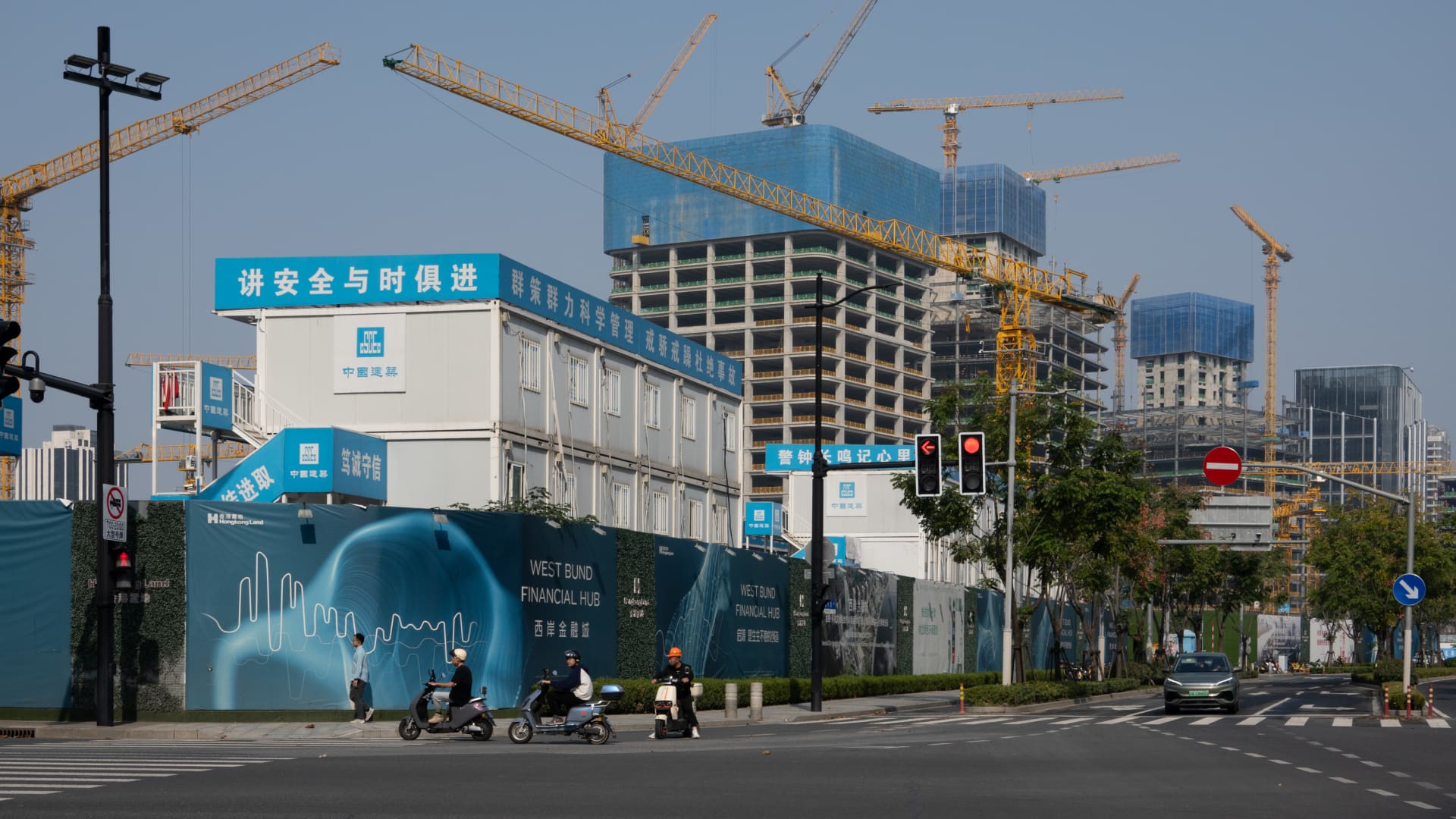BEIJING â China’s retail sales rose more than expected in October, while industrial production and investment data missed forecasts as the country’s real estate slump worsened.
Retail sales grew by 4.8% year-on-year, the National Bureau of Statistics said Friday. That was above the 3.8% forecasted in a Reuters poll, and a pickup from 3.2% growth in September.
Industrial production rose by 5.3% from a year ago, missing expectations of 5.6% growth. While fixed asset investment, reported on a year-to-date basis, rose by 3.4% from a year ago, slower than the 3.5% forecast.
Investment in real estate for the January to October period fell by 10.3% from a year ago, steeper than the 10.1% drop seen in the January to September period. It was the sharpest decline since a 10.9% dive was reported for the year-to-date period ending August 2021, according to official data accessed via Wind Information.
Meanwhile, infrastructure and manufacturing investments picked up slightly in the year-to-date period as of October, versus that of September. And the unemployment rate in cities ticked lower to 5%, down from 5.1% in September.
The statistics bureau credited the improvement in major economic indicators to the “acceleration” of existing policies and the “introduction of a raft of incremental policies in October.”
But it warned of persistent headwinds domestically and abroad, while calling for the country to “double” policy implementation efforts so as to achieve the annual growth target.
Chinese authorities have ramped up stimulus announcements since late September, fueling a stock rally. The central bank has cut interest rates and extended existing real estate support.
On the fiscal front, the Ministry of Finance last week announced a five-year 10 trillion yuan ($1.4 trillion) program to address local government debt problems, and hinted more fiscal support could come next year.
Manufacturing surveys indicated a pickup in activity last month, while exports surged at their fastest pace in more than a year.
Imports, however, fell as domestic demand remained soft. The core consumer price index that strips out more volatile food and energy prices rose by 0.2% in October from a year ago, modestly better than the 0.1% increase seen in September.
Beyond a trade-in program to encourage car and home appliance sales, Beijing’s stimulus measures have not targeted consumers directly.
China’s Golden Week holiday in early October affirmed a trend in more cautious consumer spending, but several consultants said that sales during the Singles Day shopping festival, which recently ended, had beat low expectations.
The country’s gross domestic product in the first three quarters of the year grew by 4.8%. The country has set a target of around 5% growth for the year.

